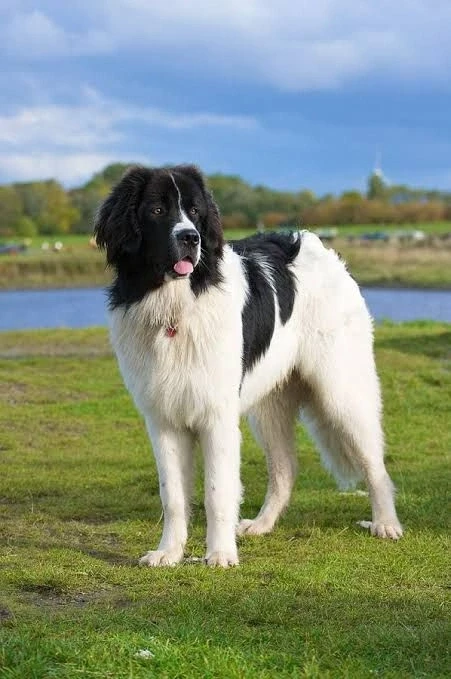
Landseer
About
The Landseer is a gentle, intelligent, and affectionate breed that makes an exceptional companion for families and individuals who can accommodate its size and need for interaction. With their striking black and white coat, calm demeanor, and love for water, Landseers are well-suited for homes that provide regular exercise, affection, and a sense of inclusion. Their kind and loyal nature, combined with their protective yet gentle personality, make them a beloved addition to any household looking for a devoted and majestic canine friend.
 Breed Size
Breed Size
-
Weight (Male)
59-68 kg
-
Weight (Female)
45-54 kg
-
Height (Male)
1-1 sm
-
Height (Female)
1-1 sm
 Coat
Coat
-
Fur Type
-
Color
One color
 Care
Care
-
Walk
>60 minutes/day
-
Breed Size
S
-
Demeanor category
Outgoing
 Breed Traits
Breed Traits
-
Barking
-
Good with young children
-
Drooling
-
Energy level value
-
Grooming frequency value
-
Good with other dogs
-
Trainability
 Breeds Club Recognition
Breeds Club Recognition
-
Trainability Category
>Easy Training
Description
The Landseer is a large, powerful working dog, originally bred in Canada and later refined in Europe for water rescue and companionship. This breed descends from the Newfoundland, resulting in an intelligent, gentle, and highly devoted companion.
- Origin: Canada and Europe, developed for water rescue and companionship.
- Smart and trainable: Quick learner with a strong desire to please.
- Loyal and affectionate: Forms deep bonds with its family.
- Energetic but gentle: Requires daily exercise and enjoys swimming.
- Thick, water-resistant coat: Requires regular grooming and sheds seasonally.
The Landseer is a calm and friendly companion, excelling in water rescue, obedience, and therapy work. With proper training and early socialization, they become well-mannered, affectionate pets suited for families and active owners.
